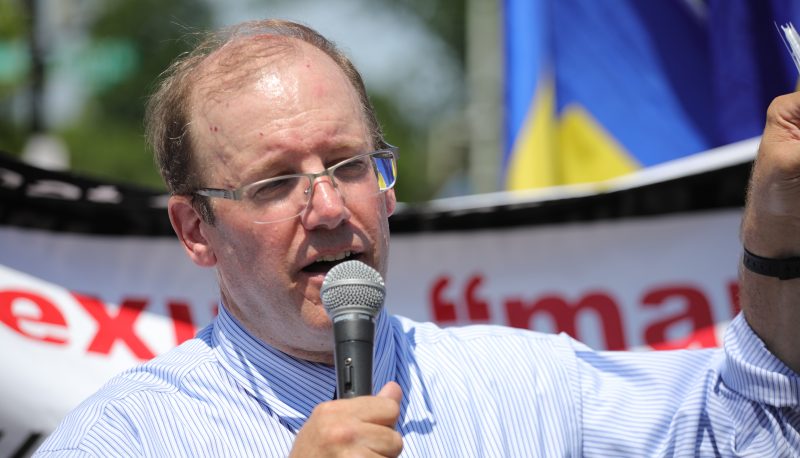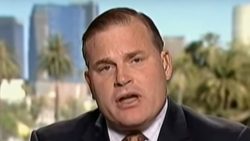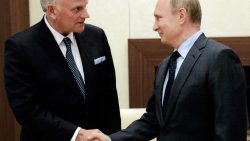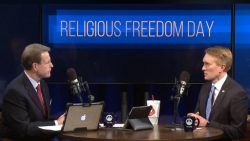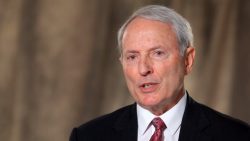South Bend Mayor and presidential candidate Pete Buttigieg, who is gay and married, is taking heat from conservatives over comments he has recently made about his Christian faith—he attends an Episcopal church—and comments criticizing President Donald Trump, Vice President Mike Pence, and the “hypocrisy” of the administration’s evangelical supporters.
Buttigieg spoke on Sunday at a fundraising brunch for the Victory Fund, which supports LGBTQ candidates, and at one point he offered a message to “the Mike Pences of the world”—that “if you have a problem with who I am, then your problem is not with me, your quarrel is with my Creator.” Last month he memorably referred to Pence as a “cheerleader for the porn star presidency.”
Buttigieg’s comments sparked a range of right-wing reactions, including what journalist Ed Kilgore calls “an extended temper tantrum” from pundit Erick Erickson about Buttigieg calling himself a Christian. Sample Erickson headlines, “Pete Buttigieg Shows Why Progressive Christianity is a Hypocritical Fraud” and “Mayor Pete Buttigieg Apparently Thinks Jesus Would Be Okay With Beastiality” (sic).
“Is the Episcopal denomination a Christian denomination?” Erickson said in a tweet. “Not anymore.” He later apologized for offending Episcopalians, but added that he hoped “those of you who are still believers will consider moving to the Anglicans or another denomination that still believes in Christianity.”
Some right-wing pundits are appalled that Buttigieg would wade into a conversation about ethics and Christianity as a gay man and a supporter of abortion rights. Anti-LGBTQ activist Michael Brown said Buttigieg’s comments were “a glaring instance of the pot calling the kettle black.” Brown also took issue with USA Today columnist Kirsten Powers referring to Buttigieg as “a devoted Christian.”
The Blaze charged that Buttigieg “is using his elevated political platform to promote a version of Christianity that makes the Word of God as revealed in the Bible secondary to personal preference.”
Of course, it’s nothing new for conservative Christians to disparage the faith of Christians they disagree with. Ralph Drollinger, who runs Bible Studies for members of the House and Senate and Trump’s cabinet, calls the social gospel—a major strain of American Christianity—a “perversion of scripture” that is “not Christianity whatsoever! It is another religion!” He has also called Catholicism “one of the primary false religions in the world.”
The Family Research Council’s Tony Perkins has dismissed as “supposed Christians” those who support reproductive choice and argued that Christians who support allowing same-sex couples to get married don’t get the same legal protections as Christians like himself because “true religious freedom” applies only to those with “orthodox religious viewpoints.”
In February, at a press conference launching yet another anti-LGBTQ organization, one of the speakers called the very idea of a “gay Christian” a “heresy.” Another participant in that event, the notoriously anti-gay Peter LaBarbera, released a statement on Tuesday denouncing Buttigieg’s “fake Christianity.”
Buttigieg, of course, is not the only Democratic candidate to talk about religion on the campaign trail. Elizabeth Warren recently won praise for how she answered a question about her faith.
But as Powers noted, news coverage of religion in public life tends to be dominated by the Religious Right, to the point that “many Americans aren’t even aware of the rich tradition of progressive Christianity.” That’s in part, she suggested, because journalists make the mistake of accepting the Religious Right’s equation of orthodoxy with authenticity, a violation of one of People For the American Way Foundation’s “12 Rules for Mixing Religion and Politics.”





